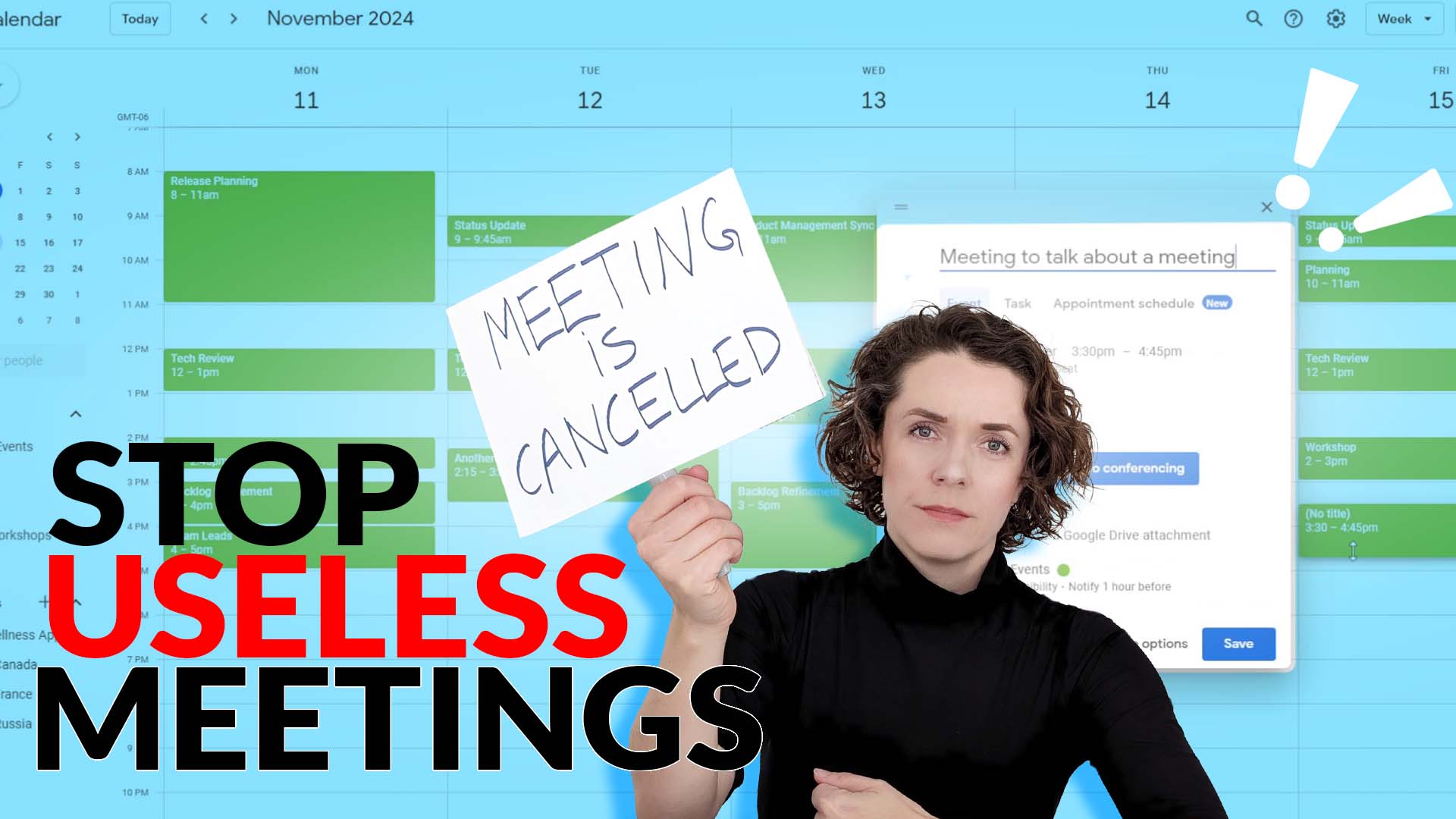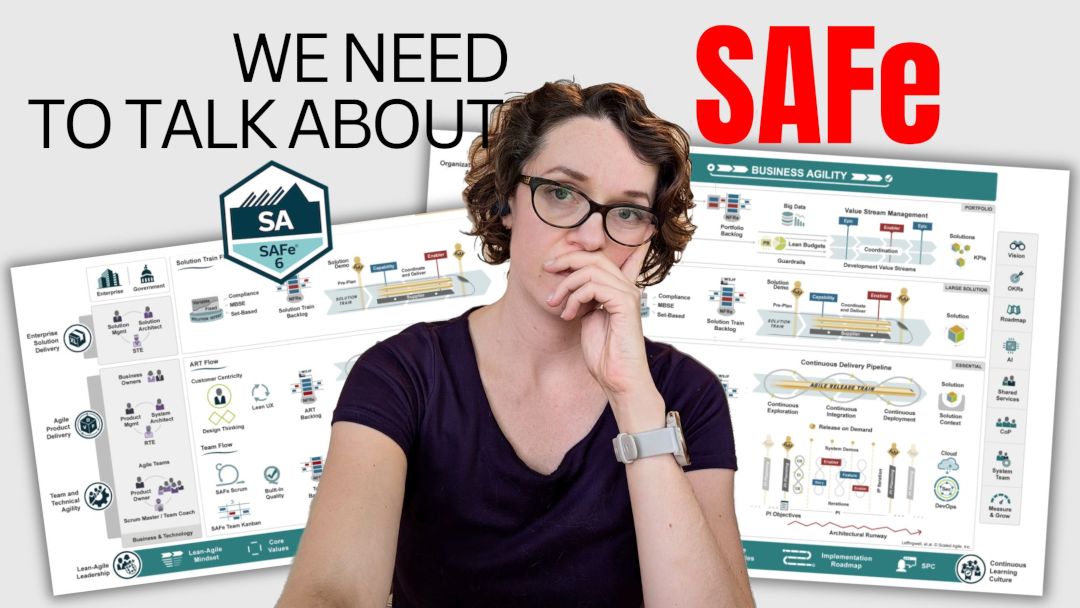One of the reasons lots of people are trying to switch careers these days is because they can work from home.
That idea of remote work sounds very very appealing.
But is it always that great?
In this video, I’d like to share four things that I wish I knew BEFORE going to work from home full time.
In the past couple of years, I have learned a lot about how to work from home productively and keep myself sane.
Funny story…
When I just started working from home, I didn’t really have an extra desk I could use in my newly created office in our spare room.
But I needed to run virtual classes almost right off the bat.
You gotta get creative in these kinds of situations.
So what I did was use an ironing board as my desk.
I kid you not.
I was using this wobbly construction for at least a couple of months before I got an actual table.
Now my setup is on another level! Stay until the end of the video to get a quick tour!
Anyway, this brings me to my very first point.
Your working space is more important than you think!
In the beginning, I believe, many people kind of just used their kitchen table as their desk.
Sitting on a dining chair the whole day is not exactly a pleasant experience.
And it impacts not only your overall productivity but just simply your mood.
If you are planning to work from home long term, I believe having a proper working space is extremely important.
Since I organized my space I feel that I can focus on my work but also don’t feel overwhelmed with all of the random stuff that may end up on my desk, like plates, or something.
It also saves me a lot of time when I have remote meetings.
I don’t need to find a quiet or comfortable space every time I need to connect to a meeting.
It was an extremely stressful experience just to get my working space ready every time.
It may seem like such a tiny improvement, but believe me – if you are prone to anxiety, this improvement will change your work life.
Speaking of anxiety, the second thing I wish I knew earlier is that:
Where you work will become your office
What I mean by that, is that if you work at your desk, and then you go have a meeting at your dining table, and then go sit on a couch to finish up a report – all of these places will be automatically associated with work.
If you keep sitting in your favorite “relax” chair to work, and you are often stressed during that time, you’ve trained your body that this chair is a “stress” chair, not a “relax” chair now.
That’s why I never take my laptop with me to the bedroom, even if it seems like a comfy place to sit.
At the same time, if there is something I love doing that is work-related, I may take it with me outside of my home office space.
For example, if I plan to sit down to write for several hours, I’d grab my laptop to sit on my couch in the living room or even on the patio during summertime.
Since you don’t technically need to leave the house to go to work, changing your environment a bit from time to time can be helpful.
But you want to be careful with what kind of work you take with you and where.
One more thing I wish I knew before I started working from home is that:
You can never clock out
If you don’t set boundaries, the workday never stops.
Lunchtime. Evening. Early morning. You are available, right?
At least that’s somehow becoming the expectation from team members.
And if you don’t set that expectation straight, well, you gotta be on call 24/7.
After months of working in a small team with very dynamic and fast-moving projects here at ScrumMastered, I had to set up some boundaries.
Work time is officially between 8 am and 6 pm. Any messages coming in outside of that time can (and should) be ignored.
Now, the next step is to actually silence my phone 😂
That’s also one more important point here – not only that you need to set the expectations straight, but also follow through with them.
How easy is it to reach out to your phone or just open up your laptop and check that email?
An if we take the previous point into account, then your working space is pretty much everywhere in your house anyway, so it seems only natural to keep working.
Pay attention to those working hours and create routines around them that help you separate work time from home time.
For example, I heard some people actually would dress up and leave the house, walk around the neighborhood for 10 minutes, and then come back home to start working.
When the working day is done, they dress up again and leave to walk around the neighborhood for 10 minutes in the opposite direction.
That kind of splits the day and gives you clear cues as to when the day started and when it ended.
Set the right boundaries with your team!
Start your team with some essential social contracts that everyone should follow to stay productive working from home.
One more unexpected thing that happened to me is the realization that:
You’re working more, not less when you work from home
Ok, obviously, if we don’t set the boundaries as explained in the previous point, that’s a no-brainer.
But even, say, if you work from 9 to 5, as you usually would do in the office, you actually may be doubling the real working time.
You know, when you are in the office and you need to go from one meeting to the other…
On the way there, you stop in the kitchen to grab a coffee and you run into a colleague from another team.
You stop for a quick chat.
Or as you are sitting in the open space working on that presentation, another colleague comes by with a question.
And that suddenly turns into a discussion about what you did last weekend.
Those small moments allow you to disconnect from work and have a nice social moment.
Social interactions at work are sometimes as important as the work itself, so they don’t feel like a waste of time as you are building connections with your team members.
But have you noticed that when you are working from home your breaks are so much shorter?
Say you want to grab a coffee. You come to the kitchen, get your coffee done in like 3 minutes, and that’s it, you can now go back to work.
And you do.
I mean, there is nothing else to do.
Even if you are living with someone, and when you take a break at that exact time they are in a meeting, there is no one else to take a break with.
So weirdly enough, I think it makes sense to set specific time aside in your calendar to take a break where you do not allow yourself to get back to work.
For example, one hour for lunchtime you have to stay away from your emails!
And that brings me to my last point. The biggest realization after a couple of years of working from home…
Working in the office was actually fun
I mean it.
When I look back at the times when I worked with the teams in the office, the first things that come to mind are the interactions.
Jokes and laughter. Smiles and snarky comments. Just being able to express yourself without words with just body language or facial expressions.
I don’t know about you, but that was fun.
In every team and every organization I worked at previously, we would often go out after work whether to celebrate a team achievement or just to have some drinks.
We don’t have that social aspect of work anymore, or, at least, it is much harder to create.
No more chit-chat at the coffee machine.
Every meeting is a meeting, it’s about serious work stuff.
We rarely get a chance to just talk about something else.
Heck… many teams rarely have a chance to just SEE their team members, even on camera.
How can you build interpersonal connections without it?
I think that while working from home comes with many cool benefits, we are also losing a lot!
And if you just never get a chance to get together with your team in one space, then you need to get a bit creative about how to build positive team dynamics.
I actually have a video called “How to build trust in teams in 30 days” that may give you some ideas of what you can do.
Check it out once you finish watching this video – remember the office tour is coming up!
But if you are looking for a remote job (let’s be honest, it’s still nice to be at home), check out Jooble.
Summary
Let’s summarize what you need to do to keep yourself productive and sane while working from home:
- Invest some time and money into organizing your working space.
- Keep your office in the office, especially the stressful work.
- Set working hours and actually follow them.
- Set time for longer breaks.
- Work on building interpersonal relationships by finding ways to replace everyday social interactions.




